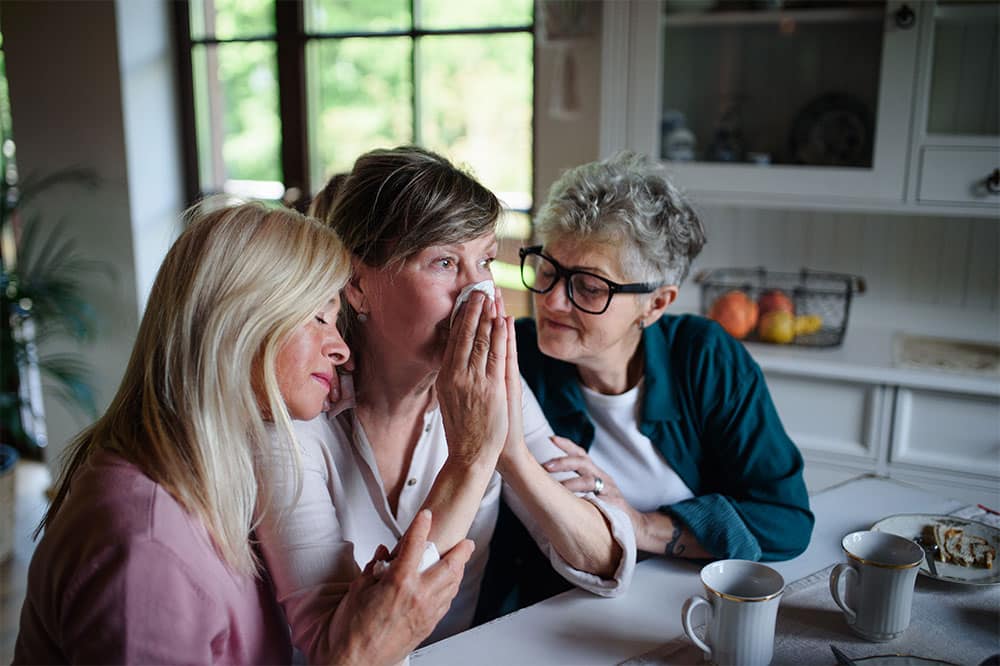Editor’s Note: 2025 Update
This article on loving someone with addiction has been updated to reflect current best practices in addiction recovery and support. All statistics and references have been reviewed and sourced from reliable, non-commercial, government, or academic institutions.
Loving Someone With Addiction: How to Support Without Enabling
Loving someone who struggles with addiction can feel like walking through fire. You want to help, to rescue, to fix what’s broken. But too often, love becomes entangled with enabling, guilt, and exhaustion. You may feel like you’re doing everything possible, yet nothing is changing. If this is where you find yourself, know that you are not alone and that your love can be a powerful tool for healing, when guided with wisdom, faith, and boundaries.
Understand That Addiction Is a Disease
Addiction is not a moral failing or a lack of willpower. It is recognized by the National Institute on Drug Abuse (NIDA) as a chronic brain disease that alters the brain’s reward, motivation, and memory functions. This means that your loved one’s actions may be driven by changes in the brain that make it incredibly difficult to stop using substances without professional intervention.
Understanding this can change how you approach your loved one. It invites compassion, but it also affirms that recovery requires more than love, it requires treatment and accountability.
Love With Boundaries, Not Blindness
Loving someone doesn’t mean shielding them from the consequences of their actions. In fact, that kind of love may unintentionally fuel their addiction. This is where healthy boundaries come in. You can love fiercely and faithfully while saying:
- “I will not give you money that could go toward drugs or alcohol.”
- “I will support you in getting help, but I will not lie for you or cover up your addiction.”
- “I love you, and that’s why I cannot allow your behavior to harm this household.”
Setting boundaries may feel harsh at first, but they create clarity. Boundaries are not ultimatums, they are commitments to protect what is good and refuse what is harmful. They also often become the wake-up call that encourages a loved one to finally seek help.
Anchor Your Love in Faith and Prayer
In times of uncertainty and grief, prayer becomes a lifeline. Philippians 4:6-7 reminds us, “Do not be anxious about anything, but in every situation, by prayer and petition, with thanksgiving, present your requests to God.” As you intercede for your loved one, remember that transformation is ultimately God’s work, not yours.
Your role is not to be their Savior. It is to remain steadfast, praying, hoping, and trusting that healing is possible through Christ. Whether or not they choose recovery today, you can rest knowing that God is with you and with them.
Know That Recovery Requires Community
Support groups, counseling, and recovery programs provide essential tools not only for the person battling addiction, but also for those who love them. Groups like Al-Anon and SMART Recovery Family & Friends offer education, shared experiences, and practical tools for navigating this journey.
At Good Landing Recovery, we also offer family counseling as part of our comprehensive addiction recovery programs. These sessions help loved ones learn how to support without enabling and how to heal from the trauma addiction often causes within the family system. Learn more about our program here.
Recovery Is a Process—So Is Loving Well
It’s important to remember that recovery doesn’t happen overnight, and neither does healing in relationships. As your loved one begins the process of recovery, your role will shift. You may move from crisis mode into rebuilding trust, communicating openly, and learning how to function in a healthier, more honest relationship.
This season may include setbacks. According to the Substance Abuse and Mental Health Services Administration (SAMHSA), relapse is a common part of recovery, not a sign of failure. Staying grounded in your own support system, continuing in prayer, and keeping clear boundaries will help you remain stable and hopeful no matter what comes.

Frequently Asked Questions
What is the difference between enabling and supporting?
Enabling prevents someone from facing the consequences of their actions, while supporting encourages healing through accountability and healthy boundaries.
Should I give my loved one money if they say it’s for food or rent?
It’s best to provide tangible support (like groceries or gift cards) instead of cash, which could be misused.
Can addiction ruin a relationship even if there’s love?
Yes. Love alone is not enough to fix addiction. Without treatment and consistent behavioral change, the relationship may continue to suffer harm.
Is it okay to walk away if the addict refuses help?
Sometimes, protecting your own mental and emotional health means creating distance. This does not mean you’ve stopped loving them—it means you’re choosing to love them without sacrificing your well-being.
Good Landing Is Here to Walk With You
You don’t have to navigate this path alone. If your loved one is struggling with addiction, or if you’re simply trying to figure out how to keep loving well in the middle of it, we’re here for you. At Good Landing Recovery, we combine biblical truth, clinical tools, and real community to offer hope and healing for addicts and their families.
Contact us today to learn more.

